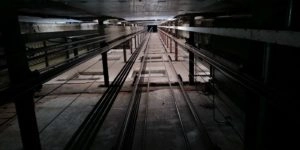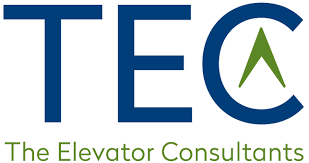Elevator Due Diligence
Elevator or vertical transportation due diligence is a critical evaluation which directly impacts the bottom line for all property transactions. Elevator and escalator due diligence is a cost-saving best practice and an essential step when purchasing, selling or refinancing a building.
It is very important for both sides of a transaction, selling or buying, to conduct a due diligence audit, elevator audit, or vertical transportation audit to verify that the equipment is in its best shape from a safety, reliability, and performance position before the purchase, sell, or refinance process is completed
Using a Property Assessment Company is NOT enough
 It takes a qualified export to assess the vertical transportation equipment which consisting of hydraulic elevators, traction elevators, escalators, lifts, dumbwaiters, and more.
It takes a qualified export to assess the vertical transportation equipment which consisting of hydraulic elevators, traction elevators, escalators, lifts, dumbwaiters, and more.
Assessment companies are not qualified to conduct this type of evaluation and will instead rely on either the building’s elevator service provider for feedback or simply confirm that the equipment passed a bare-minimum inspection. Neither of these methods provide any data about the reliability, usage, life cycle, deferred maintenance, and other critical elements that should be understood before acquiring elevator equipment.
Selling a Building or Set of Buildings
Due diligence is just as important when selling a property. A elevator audit can uncover elevator deficiencies that need to be addressed by the elevator service providers. These punch-list deficiencies are usually cured in a timely manner to meet the sale transaction time-frames. Another primary function of elevator due diligence is to analyze and make recommendations regarding any necessary repairs or upgrades.
Buying a Building or Set of Buildings
When buying a building, bringing in an elevator consultant and not relying on the building data or building personnel has proven to save clients millions. An elevator consultant is an independent industry expert who can determine the condition of the equipment, code requirements needed, and deferred maintenance. The Elevator Consultants reviews all elevator data for a building to make certain the buyer knows all the needs of the elevator to negotiate better price of a property or receive escrow for future elevator needs.
More on Elevator Due Diligence
Proper due diligence is essential when analyzing a potential acquisition or sale. Past records associated with a building’s vertical transportation system can uncover clues to future maintenance and repair. It could also be the “canary in the coal mine” alerting you that the time for an expensive elevator upgrade is on the horizon. Unless an independent elevator consulting firm is involved in the due diligence process, interested buyers could be unaware of the full financial picture.
The Elevator Consultants’ experts conduct thorough elevator inspections on site as well as on paper. Our elevator due diligence process moves beyond evaluating AIC inspection records and safety reports. A clean ASME 17.1 health and safety record may not reflect general wear and tear. Our elevator consultants know the importance of inspecting a hoist way enclosure and traction lifts up close. Our team will find underlying elevator problems current building owners either aren’t aware of, or have chosen to ignore.
Buying or Selling? Our Elevator Consultants Ensure the Due Diligence Process is on Your Side
When an investor considers adding a property to a REIT portfolio, they know where items on the balance sheet should be. Elevator maintenance may be an expense, but it shouldn’t be an unknown liability affecting the bottom line. This is where the value of a second opinion for an elevator audit comes in. Our elevator consultants can keep balance sheets out of the red by helping investors understand what they are signing up for. When an investor is aware of all the facts, a better deal can also be negotiated with the seller.
On the other hand, if it’s time to sell a property, our due diligence will make sure you are clear about the condition of a building’s vertical transportation system. Instead of being surprised by the results from the buyers’ elevator audit, the seller is empowered with accurate information and ready to make a deal. Our elevator due diligence and audits can help sellers price the property accordingly and get it moved off of the REIT portfolio promptly.
Why Elevator Due Diligence Matters for Commercial Real Estate Transactions
Elevator systems are often one of the most expensive assets in a building, yet also one of the most overlooked during property transactions. A proactive elevator due diligence assessment or an elevator due diligence survey gives buyers and sellers the clarity needed to assess:
- Remaining life expectancy of elevator components (controllers, door operators, hoist motors)
- Pending capital expenditures related to elevator system repairs needed or code compliance
- Hidden risks like deferred maintenance, safety code violations, or obsolete parts
- Elevator maintenance contract obligations and service provider performance
- Overall elevator system information, like ride quality, both of which can impact tenant experience and operating expenses, elevator performance, industry best practices, and nuances to the elevator system
Who Needs Elevator Due Diligence Services?
We provide elevator audits and vertical transportation due diligence for:
- Commercial real estate firms and REITs
- Private equity firms and investment groups
- Hospital systems and healthcare facilities
- Hotel owners, brands, and asset managers
- Property management companies
- Condo associations and residential building owners
- Retail operators and mall management
- Universities and institutional campus managers
Whether you’re adding a property to your portfolio or preparing for disposition, our elevator due diligence process ensures your deal is built on verified data — not assumptions.
What’s Included in Our Elevator Due Diligence Reports?
Our detailed elevator audit, elevator assessment, elevator survey, elevator due diligence and sometimes called an elevator inspection package includes the data our clients want like:
- Equipment Review (elevators, escalators, lifts, dumbwaiters)
- Deferred Maintenance
- Current equipment condition and code
- Ride quality and performance testing
- Maintenance history and callback frequency
- Review of current maintenance contract terms
- Remaining useful life and elevator modernization and /or upgrade recommendations
- Repair cost estimates
- Capital planning forecast
- Immediate action item list (critical safety issues or deal-impacting items)
- Reserve recommendations
Why Relying on Elevator Equipment Age or Service Provider Input Is a Costly Mistake
It’s common during property acquisitions for buyers to make assumptions based solely on the age of the elevator equipment for example, estimating that a 15-year-old system has 5 to 10 years of useful life remaining. Often, they’ll also ask the building’s elevator service provider for their opinion on the condition of the equipment. While this approach may seem practical, it is fundamentally flawed.
In reality, some elevator systems begin to fail as early as 12 to 15 years due to heavy usage, poor maintenance, engineering, OEM expected life cycle, or equipment that has become obsolete. When parts are no longer available or are extremely difficult to source, building owners are often forced into costly modernizations or upgrades with little warning.
Relying on the elevator service provider the same company responsible for maintaining the equipment, introduces a clear conflict of interest. Naturally, they will report that the elevators are performing well, even if underlying issues exist. If you ask someone to grade their report card, what would you expect?
We also frequently see buyers depend on reports from consultants hired by the seller or another party involved in the transaction. While well-intentioned, these reports are often not completed for you they are written for someone else and their strategy. This shortcut can result in significant unforeseen costs post-property acquisition.
The truth is spending a few thousand dollars on a comprehensive, independent elevator due diligence assessment can save buyers tens of thousands and in some cases, millions by avoiding unexpected elevator repairs, premature modernizations, elevator deferred maintenance, or safety compliance issues.
At The Elevator Consultants, we’ve seen this scenario play out far too often. A proper due diligence process is not a luxury it’s a necessity.
Not All Elevator Modernizations Are Created Equal
It’s common for sellers to claim that the building’s elevators have been “modernized.” However, this statement often lacks critical detail. The real question is: what exactly was modernized?
Incomplete or partial modernizations are surprisingly common. For instance, the controller and hoist cables may have been replaced, but key components such as the door equipment, fixtures, or safety systems may have been left untouched. In other cases, cosmetic upgrades like cab interiors are presented as full modernizations, when in fact the mechanical and electrical systems remain outdated or in need to be brought up to current code.
Understanding precisely which components were upgraded, and which were not, is essential to evaluating the true condition, performance, and future investment needs of the elevator system. A thorough elevator due diligence assessment will uncover these gaps before they become costly surprises.
Are You Relying on the Seller’s Elevator Records? Don’t.
Too often, property buyers rely on maintenance logs, invoices, or verbal input from on-site personnel or the current elevator service provider. This can lead to missed red flags.
Without an independent elevator consultant, you may unknowingly inherit:
- Obsolete elevator equipment with unavailable parts
- A failing controller or machine nearing end-of-life
- Code violations that require expensive retrofitting
- Performance issues affecting tenant satisfaction
Glossary of Key Elevator Due Diligence Terms
- Elevator Due Diligence– Elevator or vertical transportation due diligence is a critical evaluation that directly impacts the bottom line for all property transactions. Often referred to as an elevator audit, elevator assessment, elevator survey, or even an elevator inspection, this process is a cost-saving best practice and an essential step when purchasing, selling, or refinancing a building
- Vertical Transportation: Systems that move people or goods vertically (elevators, escalators, lifts, moving walkways).
- Elevator Modernization: The process of upgrading critical elevator components to improve safety, performance, reliability and /or compliance.
- Deferred Maintenance: Maintenance that has been postponed (or not completed) and may result in increased repair costs or system failure.
- Elevator Callback: A service visit requested between scheduled maintenance visits due to an elevator malfunction, irregular performance, or reported issue. In these cases, the building contacts the elevator service provider to address a specific problem or concern with the equipment
- Hydraulic Elevator: A type of elevator driven by a piston and hydraulic fluid, typically used in low-rise buildings.
- Traction Elevator: Uses ropes and counterweights, typically found in mid- to high-rise buildings.
- Elevator Audit: A technical assessment of an elevator system’s condition, compliance, and performance.
- ASME A17.1 / CSA B44: Elevator and escalator safety code used throughout North America.
- Elevator Maintenance Agreement Audit: Evaluation of the current elevator contract to assess service value, compliance, and vendor performance.
Frequently Asked Questions
What is elevator due diligence?
A thorough technical assessment of a building’s elevator system to determine condition, compliance, maintenance history, and capital needs is usually performed during property acquisition or sale.
How long does an elevator last?
Typical life expectancy ranges from 20 to 30 years, but usage, environment, engineering, and maintenance quality greatly impact lifespan. In today’s times we are seeing shorter lifespan (12 to 15 years) pending the equipment installed.
Can I rely on my elevator service provider’s report?
No. Elevator service providers may have a conflict of interest. Independent elevator consultants provide unbiased, expert evaluations.
Service Areas
The Elevator Consultants provides elevator due diligence services across the United States, serving clients in all areas, including Atlanta, Chicago, Los Angeles, Boston, Washington DC, Indianapolis, Dallas, Cincinnati, Tallahassee, Jacksonville, New York City, Charlotte, Houston, Baltimore, Pittsburgh, Philadelphia, Miami, Phoenix, New Orleans, and beyond. Whether you are managing a high-rise office building, a healthcare facility, or have a retail property portfolio, our team delivers expert elevator audits nationwide.

